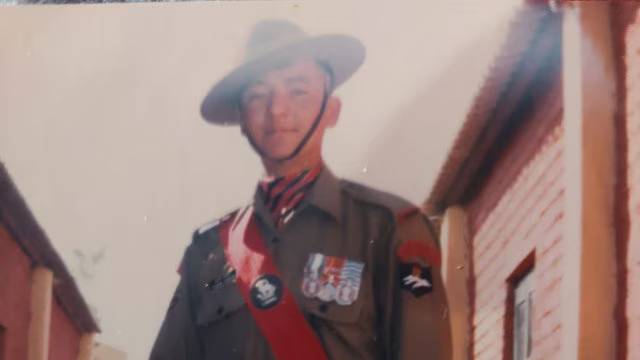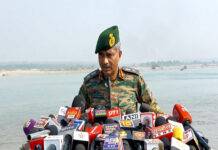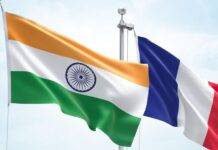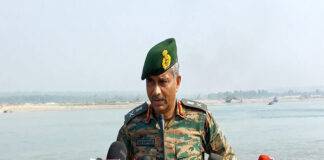Tsewang Tharchin was one of four people killed in police firing when protesters demanding statehood for Ladakh and protection under the Sixth Schedule turned violent.
Patriotism flowed in the veins of soldier Tsewang Tharchin. While Tharchin, a soldier in the Ladakh Scouts, was fighting on one front in the Kargil War, his father, also a soldier, was fighting the Pakistani army. Tsewang Tharchin joined the army in 1996. He served in the Ladakh Scouts for 20 years and retired as a Havildar in 2017. Since then, he has been running a garment shop in Leh. The circumstances of his death are unacceptably difficult for the bereaved family.
His 74-year-old father, Stanzin Namgyal, says, “My son was a patriot. He fought in the Kargil War and was on the front lines for three months. He fought the Pakistanis at Dah Top and Tololing. The Pakistanis couldn’t kill him, but our own police took his life.”
Namgyal, a Kargil veteran himself, retired in 2002 with the rank of Subedar Major and Honorary Captain. He asks, questioningly, “My son and I fought together during the Kargil War. I was in the 3rd Infantry Division, while Tharchin was in the Ladakh Scouts. Tharchin was deployed to Siachen four times. I received a commendation letter from the Chief of Army Staff for my services. Joining the army is in our blood. Even Tharchin’s children are studying in an army school, and he wanted them to join the army. Is this how the government treats its patriots?”
Tharchin’s family consists of his wife and four children: two sons and two daughters, the eldest son is only 16 years old. Relatives and neighbors remember Tharchin as a friendly man who had good relations with everyone. One relative recalls, “He was also a weapons instructor in the army and an inspiration to the youth in Sabu and his native village, Skur Buchan.”
The family calls Tharchin’s death a “murder.” They allege that there are marks of batons on Tharchin’s body, indicating that he was beaten before his death.
Tharchin’s wife is now demanding a thorough investigation into the entire incident. She says, “There should be an impartial investigation. Who ordered the firing? Who fired the shot? Why couldn’t they control the crowd with tear gas and rubber bullets? We are shocked that our own people killed him.”
Tharchin’s younger brother, an engineer, is seen busy serving visitors. He says, “Whenever there is a war, we Ladakhis fully support the Army. In addition to training our young men as soldiers, we also become porters and guides for the army. Our women cook and feed the soldiers… and now we are being called traitors.”
He said that the government’s indifference to the legitimate demands of Ladakhis led to his brother’s death. He says, “What are the people demanding? Rights over their land and economy? The right to self-governance, the right to preserve our unique culture. But how will you answer this by firing bullets at us and imprisoning our most vocal voice, Sonam Wangchuk?”
Tharchin’s funeral is expected to take place on Sunday. Namgyal says, “My son sacrificed his life for Ladakh. We hope the government will listen to us.”
(With courtesy from indianexpress.com)















